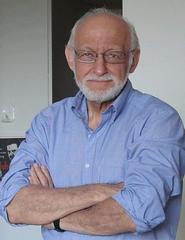Associate Professor of Art Steve Goldberg was a
consultant for
Lost Treasures of Tibet on NOVA- science programming on air and online. The program explores the village of Lo Monthang, where the way of life has remained the same for the past 500 years and discusses Mustang's importance as a last stronghold of Tibetan culture, which was mostly destroyed when China invaded Tibet in the 1950s. NOVA travels to the Mustang region in Nepal where a small group of Westerners are working with local townspeople to preserve murals on monastery walls. One of the focuses of the show is the preservation of paintings on the walls of a monastery in Lo Monthang and explores the dynamics between Western preservationists and the citizens of Lo Monthang. The importance of Buddhism in Tibetan culture and the key role the monasteries play in town politics and education are also examined. A comparison is made of the Renaissance periods that took place simultaneously, yet independently of one another, in Europe and Tibet. The original broadcast of the show was February 18, 2003.
Goldberg, who specializes in the history of Chinese art, earned a Ph.D. from the University of Michigan, and is currently writing a book, The Inscriptive Subject: Tradition and the Construction of Identity in Chinese Painting and Calligraphy. He received a grant to support the funding of photographic illustrations for the book from the University of Hawaii at Manoa. Goldberg has written on Chinese Aesthetics in A Companion to World Philosophies, Blackwell Companions to Philosophy 1997; and wrote a series of articles on the history and theory of Chinese calligraphy in The Dictionary of Art (1996).

